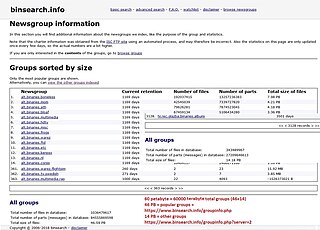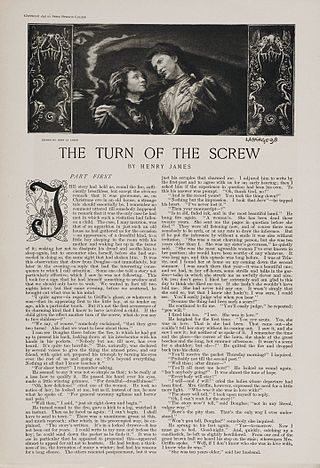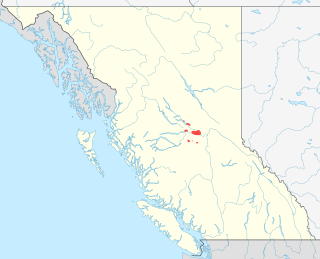Examples
One of the most easily understood examples of meta-discussion occurs in the criticism of a literary work, such as a novel. On-topic discussion of a novel, rather than meta-discussion, would include such things as the consideration of a particular character, examination of incidents in the plot, or exploration of the general themes of the book. For instance, writing or talking about the unnamed governess in Henry James' The Turn of the Screw would constitute on-topic, first-level discussion.
As it happens, published commentary about the governess has reached enormous proportions. So significant meta-discussion about such first-order criticism has arisen. Literary critic Edmund Wilson, for instance, offered various theories about the governess and other aspects of The Turn of the Screw over the years, as other critics influenced him to recant or modify his views. As a result, substantial discussion of Wilson's commentary on the book has occurred. This constitutes a classic example of meta-discussion based on Wilson's original, first-order examination of James' book.
Other examples of meta-discussion often occur on Usenet or other Internet-based discussion forums. Frequently, contributors to these forums will complain about the tone of the discussion, the personalities of other contributors as supposedly revealed in the conversation, the inability to stick to the topic at hand, or comparisons of the discussion to conversations elsewhere on the Internet. All these constitute meta-discussion based on first-order Internet conversations about a particular topic.
A Usenet newsgroup is a repository usually within the Usenet system, for messages posted from users in different locations using the Internet. They are discussion groups and are not devoted to publishing news. Newsgroups are technically distinct from, but functionally similar to, discussion forums on the World Wide Web. Newsreader software is used to read the content of newsgroups.

The Socratic method is a form of argumentative dialogue between individuals, based on asking and answering questions. It is named after the Classical Greek philosopher Socrates. In Plato's Theaetetus, Socrates describes his method as midwifery because it is employed to help his interlocutors develop their understanding—this development is compared to the growth of a child in the womb.
The Great Renaming was a restructuring of Usenet newsgroups that took place in 1987. B News maintainer and UUNET founder Rick Adams is generally considered to be the initiator of the Renaming.

The alt.* hierarchy is a major class of newsgroups in Usenet, containing all newsgroups whose name begins with "alt.", organized hierarchically. The alt.* hierarchy is not confined to newsgroups of any specific subject or type, although in practice more formally organized groups tend not to occur in alt.*. The alt.* hierarchy was created by John Gilmore and Brian Reid.

The Turn of the Screw is an 1898 horror novella by Henry James which first appeared in serial format in Collier's Weekly. In October 1898, it was collected in The Two Magics, published by Macmillan in New York City and Heinemann in London. The novella follows a governess who, caring for two children at a remote estate, becomes convinced that the grounds are haunted. The Turn of the Screw is considered a work of both Gothic and horror fiction.

An Internet forum, or message board, is an online discussion site where people can hold conversations in the form of posted messages. They differ from chat rooms in that messages are often longer than one line of text, and are at least temporarily archived. Also, depending on the access level of a user or the forum set-up, a posted message might need to be approved by a moderator before it becomes publicly visible.

Qualitative psychological research is psychological research that employs qualitative methods.
When a message is replied to in e-mail, Internet forums, or Usenet, the original can often be included, or "quoted", in a variety of different posting styles.
Palauan is a Malayo-Polynesian language native to the Republic of Palau, where it is one of the two official languages, alongside English. It is widely used in day-to-day life in the country. Palauan is not closely related to other Malayo-Polynesian languages and its exact classification within the branch is unclear.

Ethnomethodology is the study of how social order is produced in and through processes of social interaction. It generally seeks to provide an alternative to mainstream sociological approaches. In its most radical form, it poses a challenge to the social sciences as a whole. Its early investigations led to the founding of conversation analysis, which has found its own place as an accepted discipline within the academy. According to Psathas, it is possible to distinguish five major approaches within the ethnomethodological family of disciplines.
Meta is a prefix meaning "more comprehensive" or "transcending".
Meta-reference is a category of self-references occurring in many media or media artifacts like published texts/documents, films, paintings, TV series, comic strips, or video games. It includes all references to, or comments on, a specific medium, medial artifact, or the media in general. These references and comments originate from a logically higher level within any given artifact, and draw attention to—or invite reflection about—media-related issues of said artifact, specific other artifacts, or to parts, or the entirety, of the medial system. It is, therefore, the recipient's awareness of an artifact's medial quality that distinguishes meta-reference from more general forms of self-reference. Thus, meta-reference triggers media-awareness within the recipient, who, in turn "becomes conscious of both the medial status of the work" as well as "the fact that media-related phenomena are at issue, rather than (hetero-)references to the world outside the media." Although certain devices, such as mise-en-abîme, may be conducive to meta-reference, they are not necessarily meta-referential themselves. However, innately meta-referential devices constitute a category of meta-references.

The Dakelh (ᑕᗸᒡ) or Carrier language is a Northern Athabaskan language. It is named after the Dakelh people, a First Nations people of the Central Interior of British Columbia, Canada, for whom Carrier has been a common English name derived from French explorers naming of the people. Dakelh people speak two related languages. One, Babine-Witsuwit'en is sometimes referred to as Northern Carrier. The other includes what are sometimes referred to as Central Carrier and Southern Carrier.
Tariana is an endangered Maipurean language spoken along the Vaupés River in Amazonas, Brazil by approximately 100 people. Another approximately 1,500 people in the upper and middle Vaupés River area identify themselves as ethnic Tariana but do not speak the language fluently.
In English criminal law, intention is one of the types of mens rea that, when accompanied by an actus reus, constitutes a crime.
Owing to its origin in ancient Greece and Rome, English rhetorical theory frequently employs Greek and Latin words as terms of art. This page explains commonly used rhetorical terms in alphabetical order. The brief definitions here are intended to serve as a quick reference rather than an in-depth discussion. For more information, click the terms.

Conversation threading is a feature used by many email clients, bulletin boards, newsgroups, and Internet forums in which the software aids the user by visually grouping messages with their replies. These groups are called a conversation, topic thread, or simply a thread. A discussion forum, e-mail client or news client is said to have a "conversation view", "threaded topics" or a "threaded mode" if messages can be grouped in this manner. An email thread is also sometimes called an email chain.

Small talk is an informal type of discourse that does not cover any functional topics of conversation or any transactions that need to be addressed. In essence, it is polite and standard conversation about unimportant things.
Zulu grammar is the way in which meanings are encoded into wordings in the Zulu language. Zulu grammar is typical for Bantu languages, bearing all the hallmarks of this language family. These include agglutinativity, a rich array of noun classes, extensive inflection for person, tense and aspect, and a subject–verb–object word order.








